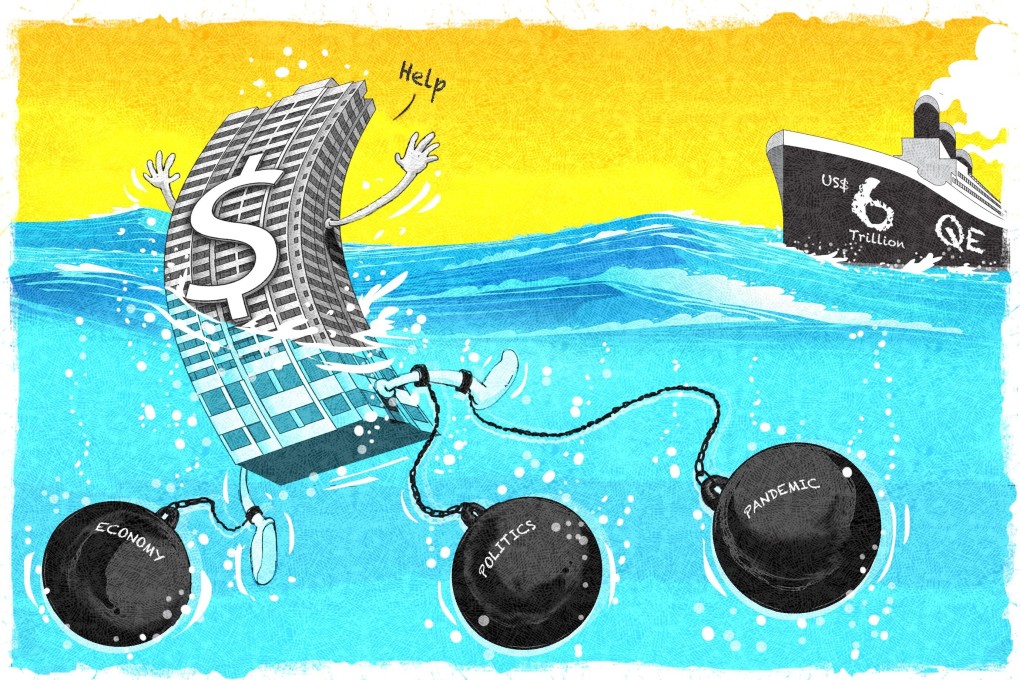A US$6 trillion tidal wave of quantitative easing is coming, but it won’t buoy Hong Kong home prices – here’s why
- Home prices are unlikely to grow at rates seen after the 2008 financial crisis because of the coronavirus and political tensions around Hong Kong’s autonomy
- Introduction of Hibor-linked loans galvanised the market post 2008, but rates are already very low currently and are unlikely to support growth

Hong Kong’s homebuyers are unlikely to see a repeat of the 278 per cent surge in property prices seen over the past 12 years, because a contracting economy, rising unemployment and heightened political tensions are expected to dilute a fresh wave of quantitative easing (QE).
A record US$6 trillion to be unleashed by global central banks this year will do little to lift the city’s property prices, which have fallen 5.4 per cent since their peak in May last year, analysts said, adding that the US Federal Reserve’s indication to keep the interest rate close at zero through 2022 may offer scant support to the property market despite Hong Kong rates mirroring the US.
“The expectation is for a prolonged economic weakness, rather than a V-shaped recovery seen across quite many regional economies during the global financial crisis,” said Harry Tan, head of research in Asia-Pacific at Nuveen Real Estate, which manages a portfolio of assets worth US$131 billion.
“The hit to business investment, labour market, consumer spending is likely to be more wide-ranging due to the very uncertain outlook and nature of the pandemic – most regional economies are expected to contract by the sharpest pace in many decades,” he said.

06:21
Hong Kong and the US: how much do they rely on each other economically?
The downcast outlook poses a potential danger for homebuyers, some of whom had been attracted in recent weeks by developers’ discounts to enter the market. As property values fall faster than mortgages, borrowers stand the danger of falling into negative equity, which stood at 384 cases as of the end of March, according to data by the Hong Kong Monetary Authority (HKMA).
Global central banks are slashing interest rates and unleashing an unprecedented amount of financial liquidity to lift the global economy from the slump caused by the coronavirus pandemic.